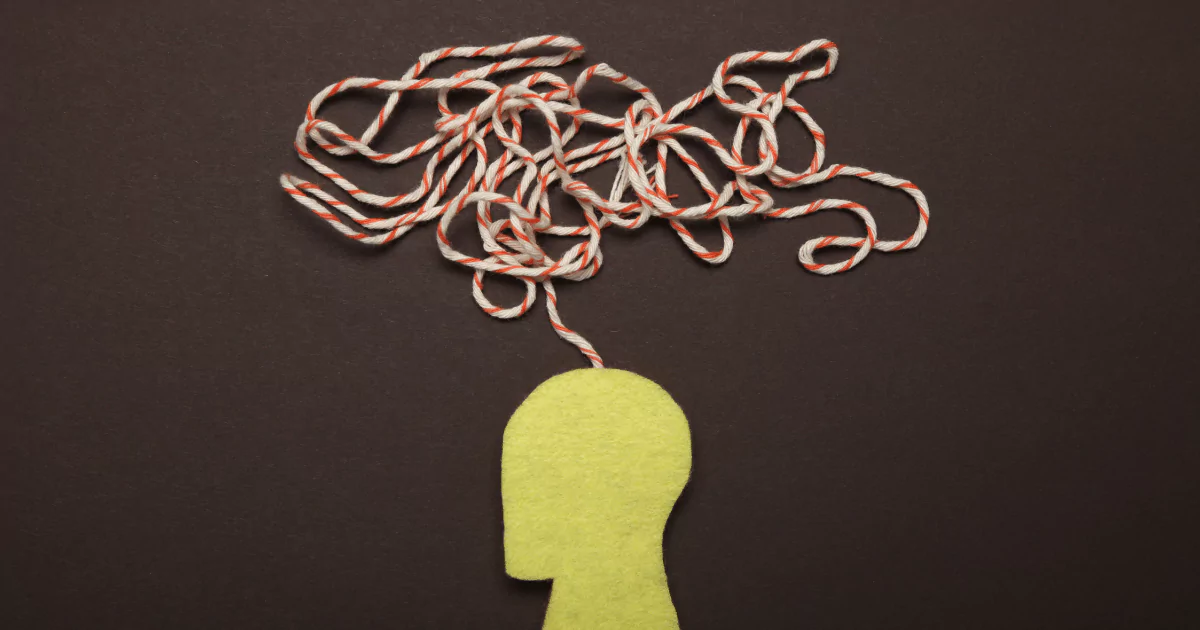Managing anxiety naturally can be very effective for many people. First, practicing deep breathing exercises can calm both mind and body, helping quickly reduce anxiety. Spending time outdoors, especially in green spaces, allows for relaxation and can ease anxious feelings. Regular physical activity, like walking or yoga, is also known to lower anxiety by releasing tension and improving mood. Another helpful tip is to establish a daily routine, which brings a sense of stability and control. Mindfulness practices, such as meditation, help ground you in the present moment, lessening worries about the future. Reducing caffeine and sugar intake can keep energy levels steady and prevent anxiety spikes.
Connecting with supportive friends or family members provides an outlet for expressing feelings. Good sleep is essential, so try to maintain a consistent sleep schedule. Additionally, limiting screen time, especially on social media, can reduce stress. Finally, setting realistic goals helps you avoid feeling overwhelmed, keeping anxiety in check and encouraging a more balanced lifestyle.

Effective Ways to Manage Anxiety Naturally
Anxiety can feel like an endless weight pressing down, stealing peace and energy. But the good news? There are natural ways to manage it. Small shifts and daily habits can help lighten the load, making a difference over time.
Practice Deep Breathing
When anxiety hits, our breathing often becomes shallow. Imagine a car engine overheating when it’s pushed too hard—similar to what happens to our bodies under stress. Deep breathing, especially belly breathing, calms the mind and helps regulate the nervous system. Try a simple exercise: breathe in deeply for four seconds, hold for four, and exhale for six. The slower, deeper breathing signals to your brain that it’s safe to relax.
Move Your Body Regularly
Exercise might sound like a one-size-fits-all suggestion, but there’s a reason it’s recommended so often. Physical activity releases endorphins, the “feel-good” hormones that naturally improve mood. Picture it like this: just as a car needs fuel to run smoothly, our bodies need movement to balance emotional energy. Whether it’s a walk, dance, or even a short stretch, moving your body can have lasting benefits for anxiety.
- Exercise helps to reduce stress by lowering cortisol levels, the body’s primary stress hormone.
- Physical activity promotes better sleep, essential for mental clarity and resilience against anxiety.
- Regular movement can enhance self-esteem by helping you feel stronger and more capable.
- Physical activity boosts brain health by increasing blood flow, which nourishes brain cells and supports cognitive function.
- Exercise can serve as a mental break, offering a focused activity that redirects your mind from anxious thoughts.
- Activities like yoga and tai chi incorporate deep breathing and mindfulness, which can calm the nervous system.
- Group exercises, such as fitness classes or sports, create social connections, reducing feelings of loneliness and enhancing mental well-being.
- Endorphins released during physical activity can be a natural antidepressant, improving mood and emotional balance.
- Regular movement, especially in nature, can reduce the symptoms of seasonal depression and improve mood stability.
- Exercise routines build discipline and structure, giving a sense of accomplishment that boosts overall mood.
Limit Caffeine and Sugar Intake
Caffeine and sugar can be like pouring gasoline on a small fire—it makes it much bigger. While a sugary snack or a cup of coffee can give a temporary energy boost, they can also increase jitters and heighten anxious feelings. Avoid calming teas like chamomile or peppermint instead, or switch to a snack with protein and fiber to keep your energy steady.
Practice Mindfulness and Meditation
Mindfulness is simply the practice of being present. Instead of worrying about tomorrow or next week, mindfulness helps bring your attention to the here and now. Think of it as a pause button. When you focus on the present moment—like the feeling of warm sunlight on your skin or the taste of your favorite meal—it’s harder for anxious thoughts to overwhelm you. Try starting with just five minutes daily, noticing your breath, the sounds around you, or even the colors you see.
Here’s a brief table on the benefits of practicing mindfulness and meditation:
| Benefit | Description |
|---|---|
| Stress Reduction | Lowers cortisol levels and promotes relaxation. |
| Improved Focus | Enhances concentration and attention span. |
| Emotional Balance | Helps regulate emotions, fostering a calm mindset. |
| Better Sleep | Reduces insomnia and improves sleep quality. |
| Increased Self-Awareness | Promotes reflection and understanding of oneself. |
Regular practice can improve both mental and physical well-being.
Connect with Nature
Nature has a way of grounding us. Picture yourself standing on the beach, hearing waves crash, or sitting under a tree as leaves rustle in the wind. Moments like these can remind us that we’re part of something much larger. Research shows that spending time outside, especially in green spaces, can lower stress and improve mood. If you’re feeling anxious, take a short walk in a nearby park or even sit on a balcony or near a window with a view.

Nature’s Grounding Power
1. Connection to Something Larger
- Being in nature, whether by the beach or under a tree, provides a sense of belonging to a vast, interconnected world.
- These natural surroundings help us step back from our individual worries and connect with a bigger perspective.
2. Nature’s Impact on Stress Levels
- Lowering Stress Hormones: Studies show that spending time in green spaces reduces cortisol, the body’s main stress hormone.
- Improved Mood: Natural settings have been shown to release endorphins and boost serotonin levels, improving overall mood and reducing anxiety.
Ways to Embrace Nature for Mental Well-Being
1. Take a Walk in Green Spaces
- A short walk in a nearby park or nature trail can have powerful mental health benefits, helping to calm the mind and reduce stress.
- Observing trees, plants, or even small animals can foster mindfulness, shifting focus away from anxious thoughts.
2. Utilize Your Environment
- Balcony or Window: If you can’t get outside, spend a few moments near a window with a view of nature or simply watch the sky, birds, or trees.
- Create a Nature Corner: Bringing natural elements like plants, rocks, or seashells indoors can evoke a grounding effect even while inside.
3. Try Mindful Observation in Nature
- Listen to the sounds around you, like rustling leaves or birdsong, and focus on these to center your thoughts.
- Use mindful breathing as you observe nature, inhaling slowly and deeply to feel a sense of calm and grounding.
Simple Nature Practices for Anxiety Relief
- Nature Walks: Dedicate 10-15 minutes to walking in nature when feeling stressed or overwhelmed.
- Beach or Waterfront Visit: If accessible, spending time near water can have especially soothing effects on the nervous system.
- Outdoor Meditation: Practicing meditation in nature, like sitting by a tree or on the grass, can enhance its calming impact.
Spending time in nature, even briefly, can reset your perspective, reduce anxiety, and offer moments of peace and grounding.
Prioritize Sleep
Imagine charging your phone with a worn-out cable—it wouldn’t get much power. Similarly, without quality sleep, our bodies and minds struggle to recharge. Anxiety often feels worse when we’re tired, and lack of sleep can make it hard to handle everyday stress. Create a calming bedtime routine: limit screen time an hour before bed, keep the room dark and cool, and try to go to bed simultaneously each night. These small changes can make a big difference over time.

Journaling
Journaling can be a powerful tool for managing anxiety. Think of it as clearing out the clutter in your mind. When we write down our thoughts, they often lose their intensity, like steam being released from a boiling pot. Try setting aside a few minutes daily to jot down your thoughts, worries, or even things you’re grateful for. There’s no right or wrong way to journal—just let the words flow and see how you feel afterward.
Challenge Negative Thoughts
Anxiety often brings along a “what if” mindset, creating worst-case scenarios in our heads. But here’s a trick: instead of letting those thoughts run wild, try to question them. For instance, if you’re anxious about an upcoming presentation, you might think, “What if I forget everything?” Instead, gently ask yourself, “What’s the worst that could happen? And how likely is it?” By challenging these thoughts, you may find that many are exaggerated or unrealistic, which can help reduce their hold on you.
Set Boundaries and Learn to Say “No”
Constantly saying “yes” to others can stretch us too thin, increasing stress and anxiety. Picture your energy like a rechargeable battery—every time you commit to something, a bit of that energy gets used up. To keep your battery from running out, it’s okay to set boundaries and say “no” when necessary. This might mean declining extra work, saying no to a social event, or simply setting aside time for yourself without guilt. Remember, taking care of yourself isn’t selfish; it’s essential.
Stay Connected with Loved Ones
Human connection is a powerful remedy for anxiety. Just as a plant needs sunlight and water to thrive, we need connection and support. Talking with someone you trust, whether a friend, family member, or therapist, can offer a new perspective, emotional support, or simply a listening ear. Even a short phone call or a coffee date can remind us that we’re not alone, which can be very comforting during tough times.
Conclusion
Managing anxiety doesn’t have to involve a complete lifestyle overhaul. Simple, natural strategies—like deep breathing, connecting with nature, or setting boundaries—can be woven into daily life. It’s often the small, consistent steps that make the most impact over time. By finding what works best for you and making those methods a habit, anxiety can feel a bit more manageable.

